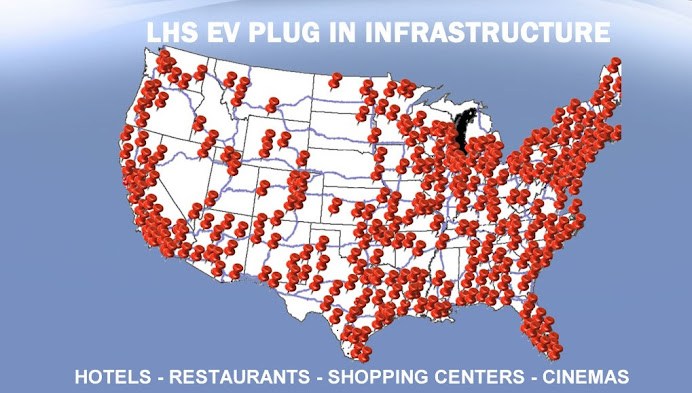State, companies and research centers join forces to present in two or three years their first carbon-free vehicles.
White coat, mask over the nose, shoes protected ... Jean-Louis Borloo and Chantal Jouanno respectively Minister and Secretary of State for Ecology visited, at the end of last week, the SAFT battery plant at Nersac, located in Charente Region. A visit which had one objective: insist once again on the idea that France is catching up to its delay to bring up the cars of tomorrow : those that run without oil or almost, hybrid or full electric.
At Nersac, SAFT has launched the first occidental production line of lithium-ion batteries for the Automobile market. "One of the techniques among the most successful to date, especially regarding autonomy," says one in the state officials' team. But in this technological battle, Jean-Louis Borloo firmely intends no to leave anybody behind: lithium polymer battery, lithium phosphate battery, "nothing should be overlooked," he says as the industrial challenge is important. The competition is strong on this carbon-free vehicles' market. "France will win this battle," continues to claim the minister. "When the country starts to work on a project correctly, its unstoppable!," he says.
The problems to solve around the electric car still are considerable. Besides the question of the autonomy, there is that of their longevity. "We must overcome the cycle of 1,000 recharges," said Jean-Louis Borloo.Price is also a problem: "Today, they cost around 12,000€ (U$ 16,600)," says Chantal Jouanno, which raises the price of the vehicles that still appear prohibitive. Not to mention the issue of recycling.
Infrastructure is another concern: "It is estimated that 2.5 outlets by vehicle are necessary," said an expert. In other words, we need to recharge the battery at home and at the office and that additional supply has to be available on the road.However, what is possible for individual homes and offices with dedicated parking lots quickly becomes a headache when it comes to condominiums. What is possible in the city due to small distances becomes a complex problem in the country ... Not to mention that the cars will have to be equipped with standardized plugs not only for France but for all Europe.
Public Procurement Program: Eleven research projects on clean cars are being funded with a total amount of 500 million € (693 million dollars) by the State through the PREDIT (R&D program for land transportation) and the ADEME (Energy Mastery Agency) demonstrative fund , but also by manufacturers or car parts manufacturers, big ones like Michelin, Renault, Peugeot or Toyota, but also smaller ones like Heuliez or Aixam.
Very efficient Research centers such as the CEA (Atomic Energy Agency), IFP (Oil French Institute) and the Mines High School are at their side. These researches are about hybrid electric and thermic cars, or about optimized heating and cooling systems to consume less gasoline, or on the Stop & Start systems (engines stops while at a red light and restarts when the driver presses the accelerator) ...
Jean-Louis Borloo is serene: "I want carbon-free vehicles to represent 15% of the automobile sales within the next 2 to 3 years" he says, which represent over 300,000 cars. Already, the government has planned a public procurement of 100,000 clean vehicles in the coming four years and launched a plan for a recharge infrastructure with 5 million outlets in the next three years.
Source : Figaro Newspaper, by Marielle Court, June 22nd, 2009

Aucun commentaire:
Enregistrer un commentaire